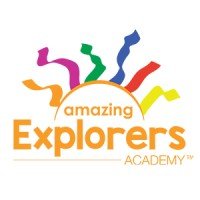Amazing Explorers: More Than a Daycare Franchise
Learn about a preschool franchise with an innovative curriculum poised for growth in Florida, the Carolinas, Texas and beyond!
Table of Contents:
Exploring Early Childhood Education: A Conversation with Marcello Spinelli of Amazing Explorers Academy
Patrick Findaro, co-founder at Vetted Biz and managing partner at Visa Franchise, recently interviewed Marcello Spinelli, the founder of Amazing Explorers Academy. This discussion dives into the growth and opportunities in early childhood education, covering topics like real estate options, market trends, and the long-term impact of preschool education on children.
How Marcello Entered the Preschool Industry
Marcello Spinelli’s background is rooted in finance, with 20 years of experience on Wall Street. Originally from Brazil, he transitioned to the education sector in 2014 after spending time in Asia, seeking more meaningful work. His brother introduced him to an opportunity to build a preschool brand, which became Amazing Explorers Academy. “We saw a gap in the market for a preschool focused on STEAM education,” Marcello explains. This realization led him to establish the company in Florida, where they developed a unique curriculum centered on science, technology, engineering, arts, and math.
The Rise of Early Childhood Education
Early childhood education is booming, with the industry valued at $55 billion. According to Marcello, this growth is driven by factors like the increasing participation of women in the workforce, rising disposable incomes, and government support for preschool programs. Additionally, the benefits of early childhood education are well-documented, as Marcello notes, with studies linking preschool attendance to higher high school graduation rates and better long-term social and cognitive outcomes.
Why Early Childhood Education Matters
The impact of early education on child development is profound. Marcello cites research by Nobel laureate James Heckman, who demonstrated a 13% annual return on investment in early childhood education, due to positive outcomes in education, employment, and behavior. Cornell University and other institutions have also found that preschool investment leads to economic benefits for communities, enhancing children’s cognitive and social skills and preparing them for future success.
Navigating the Competitive Landscape in Preschool Education
The preschool industry in the U.S. is highly fragmented, with about 670,000 schools, 65% of which are daycares rather than preschools with structured curriculums. Amazing Explorers Academy differentiates itself with a focus on STEAM education and emotional intelligence, partnering with experts from Yale to create a curriculum designed for long-term success. “We’re not here just to make a profit; we want to make an impact,” says Marcello.
Financial Viability and Business Returns
Operating in a $55 billion industry with a profit potential of around 10-20%, Marcello explains that Amazing Explorers Academy has created a business model with solid returns, especially in regions like Long Island City, New York, where monthly tuition can reach $3,000 per child. Despite the impact of COVID-19, the demand for quality preschool education remains strong, with many schools adapting to new health protocols and technology to continue operating efficiently.
Expansion Plans and Franchise Opportunities
Amazing Explorers Academy currently operates in Florida and is expanding into Texas. The brand targets strategic locations, taking demographic shifts and COVID-driven migrations into account. Marcello highlights regions like North Carolina, Georgia, and Florida as prime areas for expansion due to their population growth and family-friendly environments.
Franchise Models and Financing Options
The academy offers franchisees two main options: leasing space with a built-in turnkey solution or investing in land and property development. Both models are designed to accommodate different investor needs, and Amazing Explorers Academy is SBA-approved, meaning that franchisees may qualify for loans with a down payment as low as 10-15%.
Ideal Franchisees for Amazing Explorers Academy
Marcello emphasizes that the academy is seeking franchisees with entrepreneurial skills, research capabilities, and emotional intelligence. “We want franchisees who are flexible and dedicated to implementing our programs,” he says, noting that previous business or education experience is a plus.
The Future of Early Childhood Education
Concluding the interview, Marcello underscores the importance of early education for the future of the U.S. “Education is critical to the country’s future and to our children’s success,” he states. With over 4 million births annually, there is a growing demand for quality educational spaces to accommodate the next generation.



